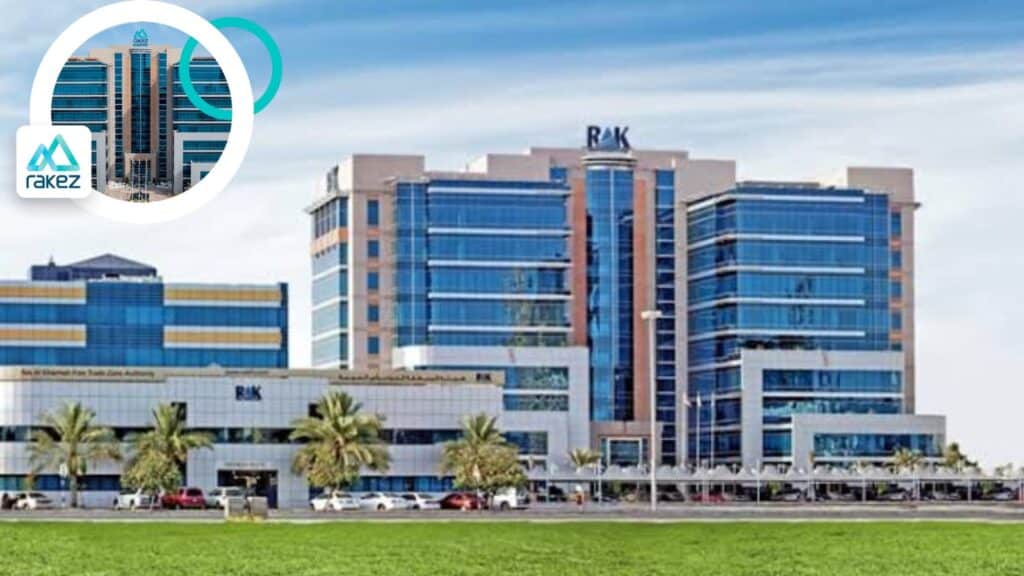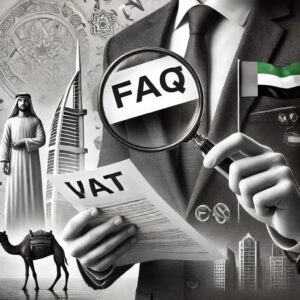A strategic location, coupled with a business-friendly environment, has propelled Dubai into the modern metropolis it is today. This magnet for global companies owes much of its success to its diverse Free Zones. There are several Free zones in Dubai and each of it operates under its own set of rules and regulations. The several benefits provided in a Free Zone include 100% Foreign Ownership opportunities, fast and easy business set up procedures, easy access to regional and global markets & world-class infrastructure.
The UAE’s corporate tax rollout has caused a stir, particularly among businesses nestled in the previously tax-free havens of free zones. The burning question that has arisen is: are all free zones in the UAE eligible for the 0% rate of corporate tax? The answer is not a simple yes or no.
Qualifying Free Zone Person:
While the 0% tax rate holds immense appeal, not all free zones and activities qualify for this tax haven. As per the Federal Decree Law on Corporate Income Tax, only a Qualifying Free Zone Person (QFZP) is subject to the tax rate at 0% on its qualifying income. On their taxable income that does not meet the definition of qualifying income, tax rate would be 9%. Qualifying freezone businesses are not subject to the AED 375,000 minimum threshold limit.
A Free Zone person should fulfil all mentioned conditions to be a QFZP:
- Maintain Adequate Economic Substance in UAE: It should ensure that there is sufficient economic substance in the UAE. All its core income-generating activities should be carried out in the Free Zone, in addition to it, based on the level of its activity, it should have adequate assets, an adequate number of qualified employees, and incur an adequate amount of operating expenditures in such free zone.
- Derives Qualifying Income: It should receive Qualifying Income as is defined in the Cabinet’s decision made on the Minister’s recommendation.
- No Election Made: It has not elected to be subjected to the Corporate Tax at the rate of 9%.
- Ensures non-qualifying revenues do not exceed the de-minimis requirements.
- Complies with Arm’s Length Principle and maintains Transfer Pricing Documentation of the UAE Corporate Tax Law.
- Complies with any additional requirements that the Minister may impose.
Non-compliance with any of the above condition triggers the loss of the benefit not for five years, including the year in which such non-compliance occurs.
To understand the concept of QFZP, one should be equipped with the knowledge of the important terminologies used: Qualifying income, De-minimis rule and Non-Qualifying revenue.
Qualifying Income:
The following incomes are categorized as Qualifying income as per Cabinet Decision No.55 of 2023:
- Income derived from transactions with other Free Zone Persons, except for income derived from Excluded Activities.
- Income derived from transactions with a Non-Free Zone Person, in respect of Qualifying Activities alone that are not Excluded Activities.
Other income whereby the Qualifying Free Zone person fulfils the De-Minimis requirements.
Note:
A. The domestic PE and foreign PE of QFZP would be treated as a separate and independent person, who is related to QFZP. The income attributable to such PE’s shall be considered as Taxable Income and taxed at the rate of 9%.
B. Income attributable to immovable property located in a Free Zone derived from the Transactions with Non-Free Zone Persons in respect of Commercial Property; Transactions with any Person in respect of non-commercial immovable property shall be considered as Taxable Income and taxed at the rate of 9%.
The de-minimis rule:
The de-minimis rule sets a threshold for QFZP’s non-qualifying income which includes income from Excluded Activities and activities not considered as Qualifying when dealing with Non-Free Zone Persons, at 5% of their total revenue or AED 5 million, whichever is lower.
For computation of Total revenue and non-qualifying revenue , the income attributable to points mentioned under A & B in the Note above, shall not be included.
Non-Qualifying Revenue:
Non-qualifying revenue is revenue derived from excluded activities and activities that are not qualifying activities carried out by QFZP with Non Free Zone persons.
Where,
Qualifying Activities would mean the following:
- Manufacturing of goods or materials.
- Processing of goods or materials.
- Trading of Qualifying Commodities.
- Holding of shares and other securities for investment purposes.
- Ownership, management and operation of Ships.
- Reinsurance services.
- Fund management services.
- Wealth and investment management services.
- Headquarter services to Related Parties.
- Treasury and financing services to Related Parties.
- Financing and leasing of Aircrafts.
- Distribution of goods or materials in or from a Designated Zone.
- Logistics services.
- Any activities that are ancillary to the Qualifying Activities specified above.
AND
Excluded activities would refer to :
- Any transactions with natural persons, except transactions in relation to the Qualifying Activities specified under (e), (g), (h) and (k) above.
- Banking activities.
- Insurance activities, without prejudice to the Qualifying Activities mentioned under (f) & (i) above.
- Finance and leasing activities without prejudice to the Qualifying Activities specified in (e), (j) and (k) above.
- Ownership or exploitation of immovable property, other than Commercial Property located in a Free Zone where the transaction in respect of such Commercial Property is conducted with a Free Zone Person.
- Any activities that are ancillary to the Excluded Activities specified above.
Standard Tax Rate applicable on FZP other than QFZP:
All Free Zone persons that do not meet all the conditions to be a QFZP are subject to tax at the standard rate of 0% on taxable income up to AED 375,000 and 9% for taxable income above AED 375,000.
While the 0% tax rate remains a powerful incentive, a clear understanding of eligibility criteria, the “de minimis” rule, and potential tax traps is crucial. With careful planning, informed decision-making, and professional guidance, businesses can continue to harness the advantages of free zones and thrive in the evolving tax landscape of the UAE. Confused about setting up your business and taxes in the Free zone? Get a free consultation with our experts on uae corporate tax for free zone. We’ll guide you every step of the way.








 UAE
UAE UAE
UAE INDIA
INDIA UK
UK

